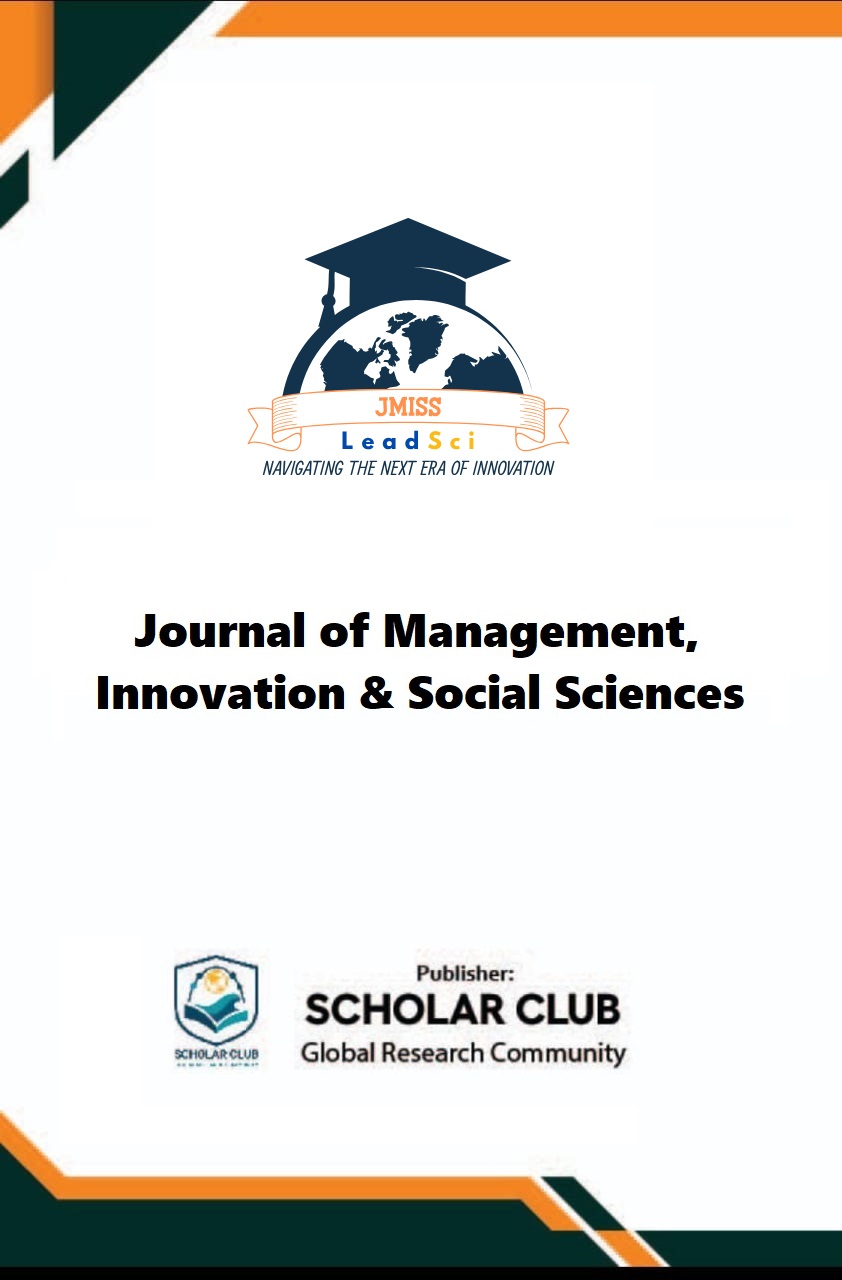JOURNAL INFORMATION:
Name of Journal: Lead Sci Journal of Management, Innovation and Social Sciences (LSJMISS)
Journal Frequency: Quarterly
ISSN (E): 3105-4935
Language: English
Name of Publisher: Scholar Club (Private) Limited
Review Type: Double Blind Peer Review
Area of Publication: Management & Social Sciences (Miscellaneous)
Journal of Management, Innovation and Social Sciences






